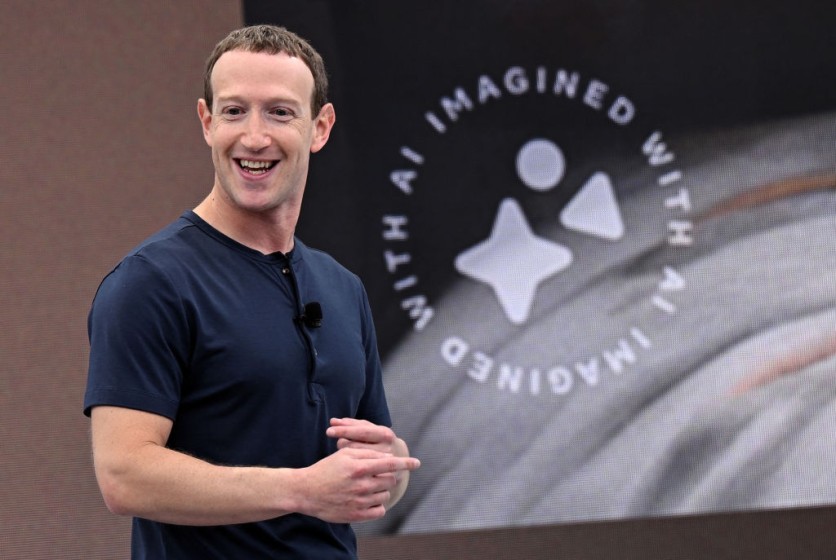Mark Zuckerberg is facing scrutiny for his stance on artificial intelligence (AI) as he commits to developing a robust AI system equivalent to human intelligence. The Meta CEO's suggestion to potentially make this artificial general intelligence (AGI) system open source, accessible to developers beyond the company, and even freely available to the public has raised eyebrows.
In a Facebook post, Zuckerberg stated that the evolution of the next generation of tech services necessitates the creation of full general intelligence. AGI, a term without a strict definition, generally refers to a theoretical AI system capable of performing diverse tasks with intelligence matching or surpassing that of humans, The Guardian reported.
The emergence of AGI has raised concerns globally, with experts and politicians fearing the potential lack of human control and the threat it could pose to humanity.

Mark Zuckerberg affirmed Meta's consideration of making its AGI open source, akin to the Llama 2 AI model, allowing developers and the public to use and adapt it. He emphasized the significance of the technology and its opportunities, advocating for widespread availability while acting responsibly.
Meta's newest Ray-Ban spectacles, driven by AI, demonstrate the company's dedication to AI integration. Meta emphasizes AI-driven advances with the glasses, which allow hands-free calls, messaging, and video recording. This follows Microsoft, Google, and Amazon's habit of offering new AI tools amid AI rivalries.
Meta Embracing AI, But Experts Express Concern
Zuckerberg's statement that Meta will create a "top-level product group" to improve AI shows the company's strategic interest in AI, per CNN. Given its recent renaming to emphasize the metaverse, Meta's turn toward AI is notable in a tech world increasingly embracing AI.
According to Forrester Research analyst Dipanjan Chatterjee, the industry has naturally evolved from perceiving every firm as a technology company to an AI company. After losing interest in the metaverse since its rebranding from Facebook to Meta, Meta's move to AI is considered a brand revitalization.
However, Dame Wendy Hall, a computer science professor at the University of Southampton and a UN advisory body member on AI, expressed strong reservations about the idea of open-source AGI. She described the prospect as "really scary" and criticized Zuckerberg for irresponsibly considering it without adequate regulation. Hall emphasized the potential harm if such technology falls into the wrong hands, emphasizing the need for urgent regulatory measures to ensure public safety.
Hall underlined the significance of quickly advancing legislative frameworks to meet the issues of strong AI systems, even though AGI may take years to achieve. This discussion over open source AGI highlights worries about the responsible development, regulation, and hazards of AI technology.
Focusing on AI This Year
Meta's third-quarter earnings report forecasts 2024 costs between $94 billion and $99 billion. The proliferation of computing projects contributed to higher expenses, according to CNBC.
Mark Zuckerberg told investors that AI will be the main investment emphasis. "In terms of investment priorities, AI will be our biggest investment area in 2024, both in engineering and computer resources," the Meta founder said on the call with analysts.
Related Article : Artificial Intelligence Drives Meta's Ads to 32% Higher Returns

ⓒ 2025 TECHTIMES.com All rights reserved. Do not reproduce without permission.




